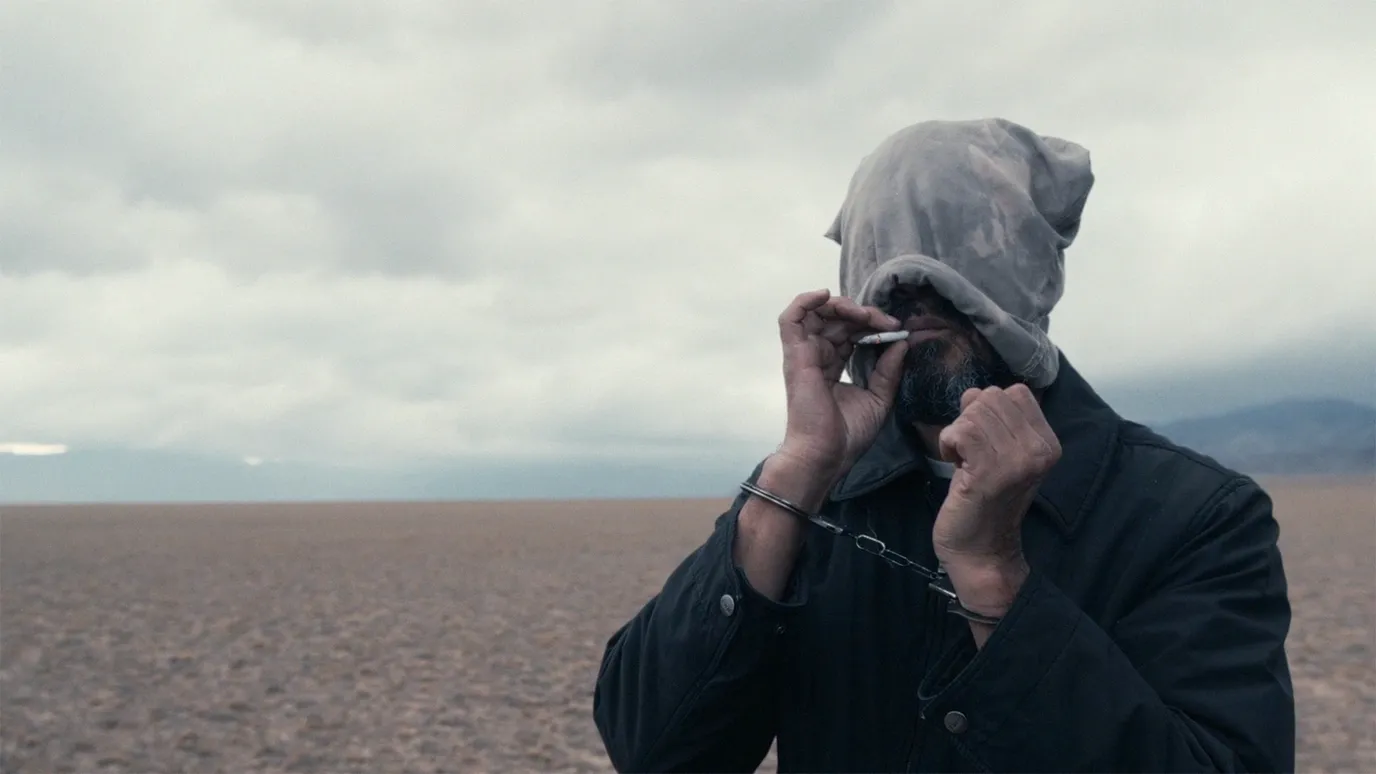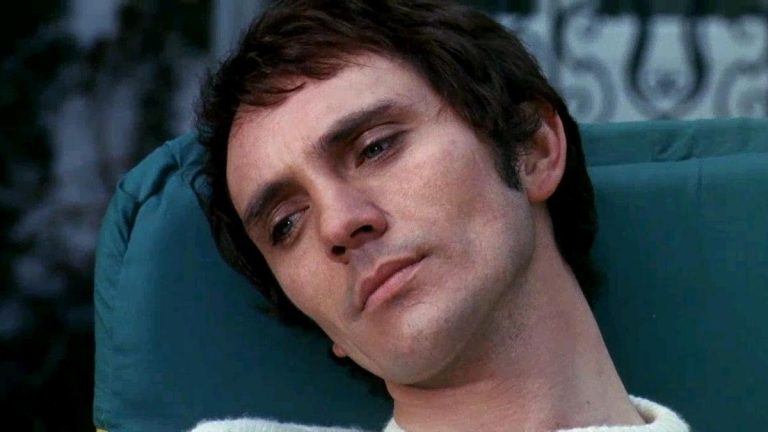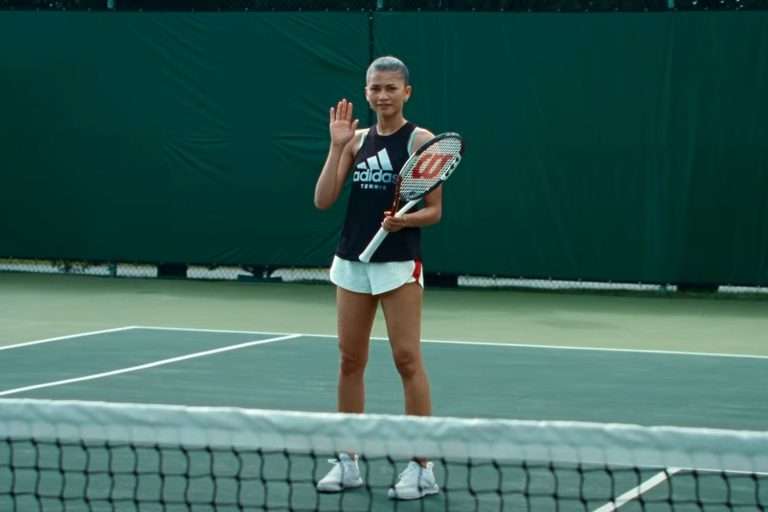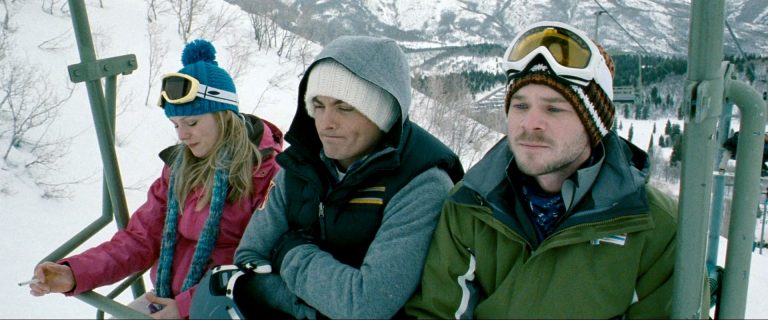Adilkhan Yerzhanov’s latest directorial, “Steppenwolf,” summons an immediate gloom and doom from its opening. It is a blood-spattered world he presents, one that has lost not only its moral moorings but also seems leached of any ideal of hope and justice. In an unnamed setting where lawlessness runs amok with all the vestiges of police machinery crushed into subservience under the command of a militant faction, the film is a bruising snapshot of people whose humanity and sanity hold little meaning or direction. The landscapes are as haunted by a stinging desolation as are the characters whose lives have been shattered by the mayhem erupting around them.
Yerzhanov is a filmmaker who isn’t remotely interested in tempering the forbidding grimness of his material, which has been inspired by Hermann Hesse’s eponymous 1927 novel. I’m not familiar with the text, but the film embodies a constant state of sunken spirit. The slightest traces of faith and regenerative possibility seem dimmed as characters traipse through the carcass of a town, pushed to the very edge of existence. Dignity and integrity have all but been forsaken, and ordinary residents have been brutally reminded of their diminishing status and heightening stakes.
Yerzhanov, who has also written the film, hints at a stage in the unfolding civil war where any form of resistance has been wholly snuffed out. This is an intense, severe, and merciless film that is set on denying the viewer relief from the immense violence that keeps piling up. Everyone is acutely aware of the pitilessness in the circumstances they’re trapped in, as well as the bitter truth of no escape or at least an escape that’s impossible without sacrificing yet another layer of one’s soul. There’s nothing of that to preserve anymore in an environment cynically resigned to the shambles that it is in.
Amidst the despair that tightly hangs over the town, an unconventional duo is bunched together. Tamara (Anna Starchenko), who is desperately looking for her missing son, Timka, stumbles across an ex-convict and confession specialist, Brayuk (Berik Aitzhanov). Tamara can barely utter anything coherent except muttering her refrain about finding her son. She has retreated into a shell-like, phantom-like existence, inured to the bursts of devastation all around her. The extreme chaos she has witnessed has hardened her to such a degree that her response of breaking into laughter serves to highlight the magnitude of absurdity entrenched in the routine violence.

Lured by Tamara’s promised five grand as reward money, Brayuk decides to help her out on her wandering quest for her son, who is in the grips of a powerful child trafficking gang. But Brayuk has other agendas to whet, vendettas to clear in going after the kingpin. Inevitably, he has his own tragic history that feeds into his present motivations, driving him in his vengeance-fuelled bleak vision of where he wants to take things. He is deeply nihilistic, whereas she insists on retaining and holding onto the shreds of belief in goodness.
Brayuk is gruff, rugged, and tough in his ways. He is exasperated by Tamara’s compliance and passivity, frequently urging her to be vocal about her displeasure and wishes. When Tamara’s partner asks her to make tea, and she seems unwilling, Brayuk exhorts her to protest and make a pointed, direct refusal. However, she utters not a word. Vexed, defeated, and retiring to an acceptance of her temperament, he orders her to make tea for him as well then. Brayuk makes no bones about his compulsive resorting to methods of violence to extract necessary answers. He knows it as his only way of maneuvering through a world that has forfeited all structures of rules and order.
Tamara latches onto the remnants of softness she can marshal. But how long can it endure and last when placed amidst unceasing brutality? Starchenko is astonishing as a woman who finds herself doing things she may never have thought of, layering her character’s tremulousness with signs of slowly absorbing the requisites for survival. Yerkinbek Ptyraliyev’s camerawork steeps the ravaged landscapes in bleakness, establishing a thrilling, unsettling consonance with the vivid unpredictability of situations in the narrative. Yerzhanov has a skill for hurling the viewer into bouts of instability. It is a task to keep the viewer continually invested with this particular tone, but the director excels at evoking a sustained uprooting.
Though the occasional punctuations of music and text accompaniment come off as a superfluous break, “Steppenwolf” stays consistently true to its corrosive vision. Unpalatable horrors roll out in quick succession, forgiveness is scant, and the director crafts a quintessential tale of retribution with a sobering punch. Yerzhanov’s authority in locating mood and atmosphere rides over all blips in his screenplay.





![London Files [2022] ‘Voot’ Review: Begins With Absolute Chaos, Ends With Absolute Silence](https://79468c92.delivery.rocketcdn.me/wp-content/uploads/2022/04/London-Files-Voot-2022-768x432.webp)


![Love, Simon Review [2018]: Everyone Deserves A Great Love Story](https://79468c92.delivery.rocketcdn.me/wp-content/uploads/2018/08/love-simon-screenshot-1-768x432.jpg)